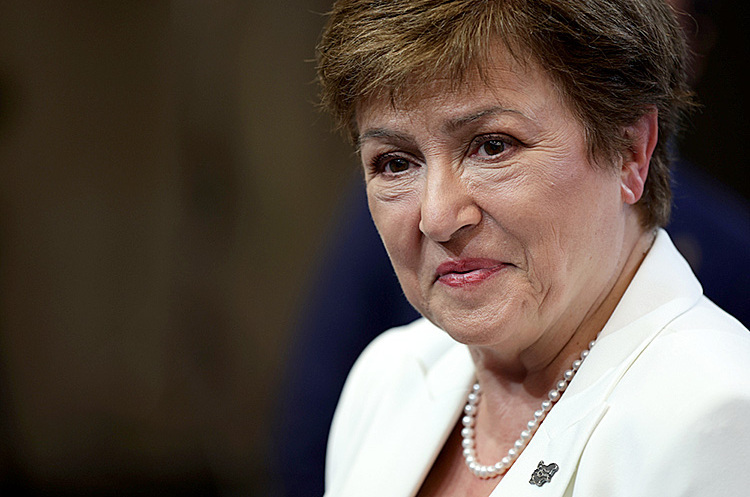IMF chief warns of “the biggest challenge for world economy since World War II”
Georgieva names four “urgent issues” that can help to fight against geoeconomic defragmentation

What happened? The head of the International Monetary Fund (IMF), Kristalina Georgieva, warned that the world economy could face the greatest challenge since World War II.
Source. She stated this at the opening of the World Economic Forum in Davos, The Guardian reports.
Details. Georgieva called on for a fight against geoeconomic defragmentation, and identified four “urgent issues”:
Firstly, Georgieva called to strengthen trade to increase resilience: “We can start now by lowering trade barriers to alleviate shortages and lower the prices of food and other products. Not only countries but also companies need to diversify imports – to secure supply chains and preserve the tremendous benefits to business of global integration. While geostrategic considerations will drive some sourcing decisions, this need not lead to disintegration. Business leaders have an important role to play in this regard,” said the head of the IMF.
A new IMF research shows that diversification can halve the potential loss of GDP from supply disruptions. Car manufacturers and others have found that developing products that can use substitutable or more widely available parts can reduce losses by 80 percent.
Secondly, Georgieva noted that joint efforts to deal with debt should be intensified:
“With roughly 60 percent of low-income countries with significant debt vulnerabilities, some will need debt restructuring. But a return to debt sustainability will draw new investment and spur inclusive growth. That is why the Group of Twenty’s Common Framework for Debt Treatment must be improved without delay. This means putting in place clear procedures and timelines for debtors and creditors – and making the framework available to other highly-indebted vulnerable countries,” she stated.
Thirdly, cross-border payments need to be modernized:
“Inefficient payment systems are another barrier to inclusive growth. Take remittances: the average cost of an international transfer is 6.3 percent. This means some $45 billion per year are diverted into the hands of intermediaries – and away from millions of lower-income households.
A possible solution? Countries could work together to develop a global public digital platform – a new piece of payment infrastructure with clear rules – so that everyone can send money at minimal cost and maximum speed and safety. It could also connect various forms of money, including central bank digital currencies,” Georgieva suggested.
Fourthly, she called for a fight against climate change, which she called “an existential problem that rises above everything else.”
During the COP26 climate conference, 130 countries, representing over 80% of global emissions, committed to achieve net-zero carbon by around mid-century.
“But we urgently need to close the gap between ambition and policy. To accelerate the green transition, the IMF has argued for a comprehensive approach that combines carbon pricing and investment in renewables, and compensation for those adversely affected,” said Georgieva.
If you have read this article to the end, we hope that means it was useful for you.
We work to ensure that our journalistic and analytical work is of high quality, and we strive to perform it as competently as possible. This also requires financial independence. Support us for only UAH 196 per month.
Become a Mind subscriber for just USD 5 per month and support the development of independent business journalism!
You can unsubscribe at any time in your LIQPAY account or by sending us an email: [email protected]



